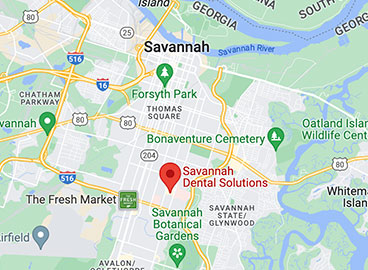
If you have been experiencing pain or discomfort in your jaw or around your ear, it could be TMJ disorder. This joint dysfunction affects more than 35 million people in the United States alone, according to the National Institute of Dental and Craniofacial Research.
So, what is TMJ disorder? What causes it? And, how can it be treated? Let’s talk about it.
What is TMJ Disorder?
The temporomandibular joint (TMJ) is the joint that connects your temporal bone (or upper jaw) to your lower jaw – and it is located on either side of the head, right next to the ear. It is designed to move with a sliding hinge-like motion. But, when it is not functioning properly, it can lead to a lot of pain and discomfort. This is referred to as TMJ disorder.
What Causes TMJ Disorder?
There are many different things that can cause TMJ disorder, which is likely why it’s rate of prevalence is so high. Below is a list of the most common causes.
- Tooth or jaw alignment issues
- Poor oral health
- Stress
- Bruxism (grinding or clenching)
- Trauma to the mouth or jaw
- Arthritis
- Eroded disk (wear and tear)
Sometimes the cause is difficult to pinpoint, regardless of your signs or symptoms.
Signs and Symptoms of TMJ Disorder
Most individuals who deal with TMJ disorder experience some level of discomfort. If you are experiencing any of the below, it is best to seek treatment from your dentist so that you may find relief.
- Jaw pain and/or tenderness
- Pain around (or in) the ear
- Pain while chewing
- Dull facial pain or ache
- Clicking or grating sound when opening and closing mouth
- Locking of the joint – being unable to open or close the mouth easily
Treating TMJ Disorder
Because TMJ disorder is so prevalent and doesn’t always cause debilitating pain, it is not uncommon for people to seek at-home treatments. For these mild causes that don’t cause too big of a disruption in life, you may want to try one of the following:
- Apply moist heat to the area
- Apply ice to the area to reduce inflammation
- Eat soft foods to give your jaw a rest
- Relax your muscles and allow your jaw to loosen up
- Take over-the-counter pain medication if necessary
However, for those cases of TMJ disorder that is a little more painful and disruptive – seeing the dentist is recommended. A thorough examination of your mouth and jaw alignment as well as determining the cause of the jaw disorder can help your dentist find the best treatment. For instance, if things are out of alignment, steps can be taken to realign the bite, teeth, and jaw, often using braces. Or oral appliances can benefit someone who has bruxism that is leading to TMJ disorder.
To find any relief at all, though, you have to take the first step and visit the dentist.
Find Treatment for TMJ Disorders at Savannah Dental Solutions
The entire team at Savannah Dental Solutions understands how much TMJ disorder can impact your overall quality of life. We want to help you find healing and comfort by providing you with the best care.






